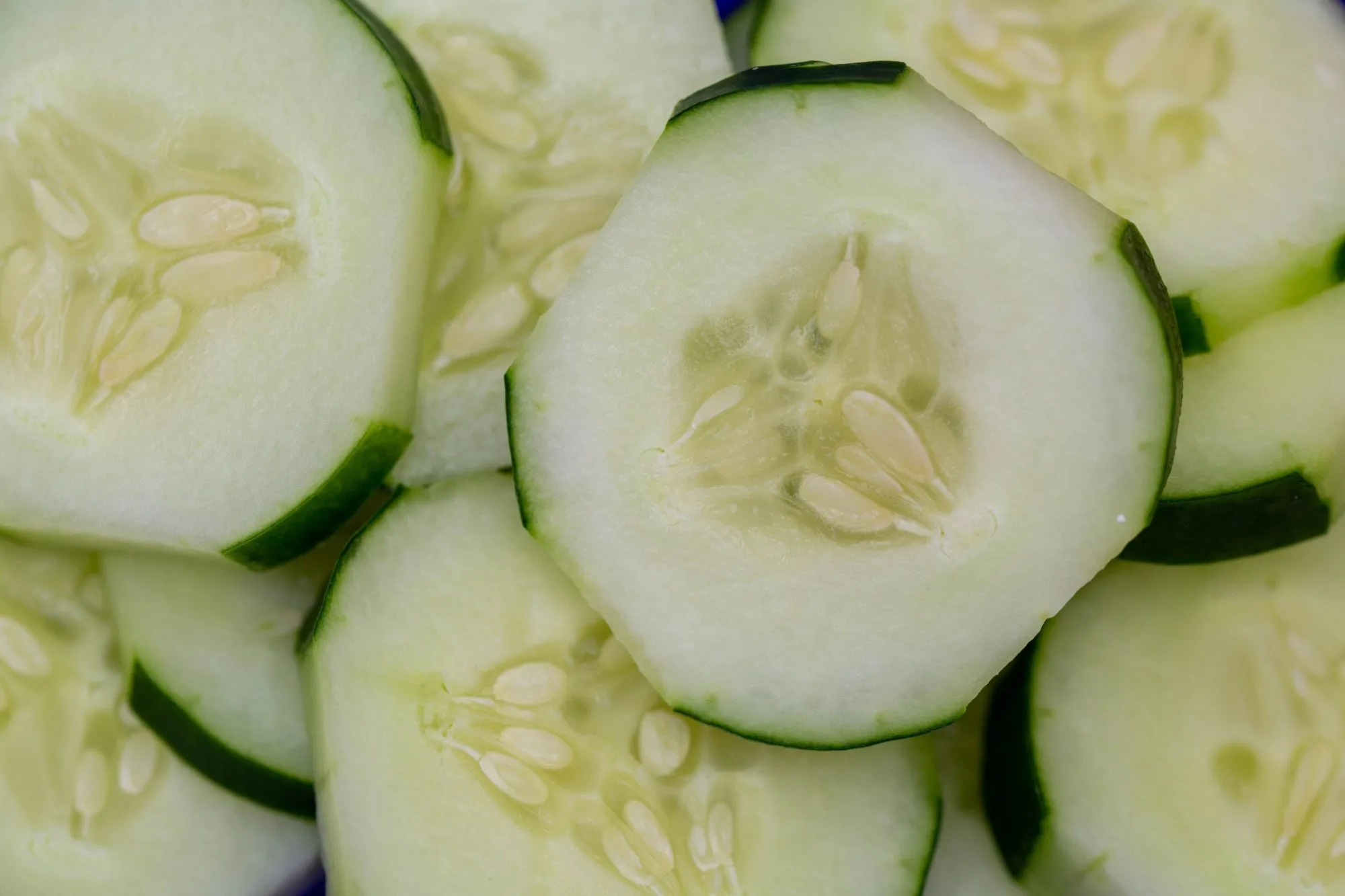We’ve all heard about the hype surrounding celery juice, with many health fanatics touting the beverage as a miracle drink that will help to address a number of health ailments. Now, while the debate rages on how true these statements are, there seems to be a new health drink in town. In fact, it appears that 2020 is going to be all about cucumber juice.
Let’s talk about cucumbers
Now, before we get into the details about cucumber juice, it’s best to first discuss the nutrients and associated with cucumber – which is technically a fruit.
Belonging to the same family as zucchini, watermelon, pumpkin, cucumbers are low in calories, and they also contain a few essential nutrients as well as antioxidants. These nutrients include fiber, potassium, magnesium, as well as vitamins C and K. What’s more, cucumbers are also made up of at least 96% water (1). The antioxidants found in cucumbers are also known as cucurbitacins antioxidants and, according to a Spanish study, these antioxidants contain anti-tumor properties.
Additionally, research published in the Journal of Nutrition, Health, and Aging, a month-long consumption of cucumber powder resulted in an improvement in the body’s antioxidant activities.
What other health benefits does cucumber provide?
1. It keeps you hydrated
Water is important for a healthy body, as it makes sure that everything functions well. This is why it’s important to stay hydrated at all times as not doing so can affect various parts of your body, ranging from your metabolism to how well your body absorbs nutrients.
Thankfully, as cucumbers are almost all water, they can help you meet your daily water intake. In fact, most people get their daily water intake from foods.
2. It can help you manage your weight
As mentioned, aside from being low in calories, cucumbers are also high in water. So, what does that have to do with your weight?
Well, according to research published in the journal Nutrients, consuming foods high in water as well as low in calories has been linked to a notable decrease in body weight.

Photo by Natalie Rhea Riggs on Unsplash
3. It can boost your digestive health
Cucumbers can help keep you hydrated, and water is essential for regular bowel movements. In fact, dehydration can make bowel movement quite difficult so it’s important to stay hydrated if you want to reduce the risk of constipation.
Additionally, cucumbers also contain a form of soluble fiber known as pectin and studies have found that pectin can help to improve digestive health (2).
4. Boosts Skin Health
If you’re the type to place cucumber slices over your eyes, then you’re definitely onto something.
According to research found in the journal Fitoterapia, cucumber slices can help to reduce swelling and redness in the skin. What’s more, cucumber extract is often used topically on the skin to relax it and alleviate pain associated with sunburn.
5. Helps manage diabetes
If you’re looking to manage your blood sugar levels, animal studies have found that cucumbers may be the key.
According to a test-tube study published in the journal Bioimpacts, cucumbers were found to help prevent diabetes-related complications.
Okay, so what about cucumber juice?

Photo by Caroline Attwood on Unsplash
As cucumbers have such a high water content, drinking cucumber juice will definitely help to see you hydrated. In fact, if you battle with drinking regular water, try adding cucumber juice to your routine to help you stay hydrated.
That said, hydration is the only benefit that cucumber juice can provide. Yes, cucumbers do contain nutrients that can benefit the body. However, these are found in low amounts and the juicing process results in the loss of these nutrients. Therefore, cucumber juice is more of a hydrating drink and less of a healthy elixir.
In fact, if you really want a nutritional boost, you’re better off slicing up some cucumbers and adding it to a low-carb dinner.
References
Heidari, H., Kamalinejad, M., Noubarani, M., Rahmati, M., Jafarian, I., Adiban, H., & Eskandari, M. R. (2016). Protective mechanisms of Cucumis sativus in diabetes-related modelsof oxidative stress and carbonyl stress. BioImpacts : BI, 6(1), 33–39. doi:10.15171/bi.2016.05
Ji, L., Gao, W., Wei, J. et al. J Nutr Health Aging (2015) 19: 765. https://doi.org/10.1007/s12603-015-0524-x
Pulok M., Neelesh N., Niladri M., et al. (2013), Phytochemical and therapeutic potential of cucumber, Fitoterapia, Volume 84, Pages 227-236,ISSN 0367-326X, https://doi.org/10.1016/j.fitote.2012.10.003.
Rios, J., Andújar, I Escandell, J., et al. (2012). Cucurbitacins as Inducers of Cell Death and a Rich Source of Potential Anticancer Compounds. Current pharmaceutical design. 18. 1663-76. 10.2174/138161212799958549.
Stelmach-Mardas, M., Rodacki, T., Dobrowolska-Iwanek, et al. (2016). Link between Food Energy Density and Body Weight Changes in Obese Adults. Nutrients, 8(4), 229. doi:10.3390/nu8040229
Xu, L., Yu, W., Jiang, J., & Li, N. (2014). Clinical benefits after soluble dietary fiber supplementation; A randomized clinical trial in adults with slow-transit constipation. Zhonghua yi xue za zhi. 94. 3813-6. 10.3760/ema.j.issn.0376-2491.2014.48.006.



![women [longevity live]](https://longevitylive.com/wp-content/uploads/2020/01/photo-of-women-walking-down-the-street-1116984-100x100.jpg)










